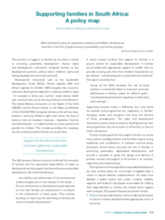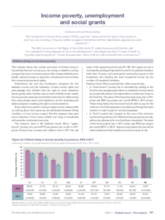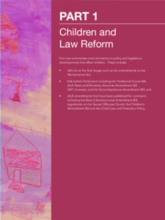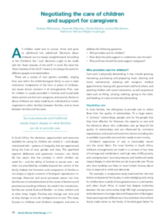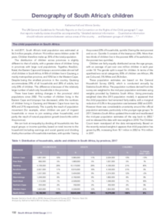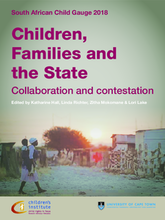childrens_living_arrangement
children_living_without_bio
Displaying 131 - 140 of 336
Informed by the qualitative method and the descriptive-interpretive design, this study, which was underscored by radical humanist goals of structural social work, reflects the voices of 16 youth who had transitioned out of care.
This qualitative study sought to explore the perspectives of a group of South African caregivers, all of whom were in receipt of a Child Support Grant (CSG), in relation to their own caregiving and family functioning.
Presenters of this webinar will share background on the history of tthe South African Council for Social Service Professions (SACSSP), its role and composition.
This chapter from the South African Child Gauge 2018 reviews national policies supporting families as well as other services in South Africa that seek to strengthen families and address the needs of vulnerable families in the country.
This chapter from the South African Child Gauge 2018 provides an overview of children living in poverty in South Africa, highlighting those living in households without an employed adult.
This chapter from the South African Child Gauge 2018 reviews the latest developments in law and policy affecting children in South Africa.
This chapter from the South African Child Gauge 2018 focuses on childcare and children’s caregivers in South Africa and aims to address the following questions: Who provides care for children? How does the state support or undermine care choices? Why and how should the state support caregivers?
This chapter from South African Child Gauge 2018 describes the demographics of children's household living arrangements in South Africa, including details on orphaned children.
This thirteenth issue of the South African Child Gauge® focuses on children in relation to families and the state, both of which are central to providing for children and supporting their development.
"Kinship care is a widespread and customary practice in South Africa, as it is elsewhere in southern Africa," says this article by Kath Hall. The laws that support families in the country, however, do not always take these practices into account.

